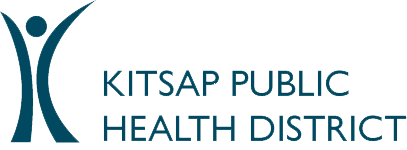
May is Hepatitis Awareness Month. See recommendations below to effectively screen for, test, and treat HCV.
ACTIONS REQUESTED
SCREEN AND TEST FOR HEPATITIS C
BE AWARE that CDC has updated hepatitis C (HCV) screening recommendations. The recommendations are as follows:
SCREEN all adults aged 18 years or older for HCV at least once in their lifetime regardless of risk factors.
TEST persons with ongoing risk factors for HCV periodically, including:
- People who currently or have ever injected drugs and share needles, syringes, or other drug preparation equipment
- People who ever received maintenance hemodialysis
- People with unregulated tattoos or piercings
- People living with HIV
- Health care personnel after exposure to HCV-positive blood
TEST all pregnant people during each pregnancy.
TEST any person who requests hepatitis C testing, regardless of disclosure of risk, as many people may be reluctant to disclose stigmatizing risks.
CONFIRM HCV infections by performing HCV RNA tests on all patients who screen antibody-positive. It is recommended that providers also order an antibody test with reflex to HCV RNA.
TREAT HEPATITIS C
BE AWARE there is a highly effective cure for hepatitis C that can be managed in primary care. New and highly effective Direct Acting Antiviral (DAA) therapy has a success rate of over 95% and can be started at 3 years old.
TREAT HCV with new DAAs in those aged 3 and up. HCV can be treated in a primary care setting in nearly all patients with HCV. Medications to treat HCV are effective, short-term (8-12 weeks), well-tolerated, and covered by most insurance, including Medicaid.
CONSULT the most up-to-date HCV prevention and treatment guidelines at hcvguidelines.org to help guide treatment decisions and when to refer to specialty care.
REFER persons with positive HCV RNA results to treatment within your healthcare facility or to another provider if you do not offer treatment. Kitsap Public Health District is available to consult with providers and can help connect people with chronic HCV to treatment.
ASSIST patients who are uninsured or underinsured by linking them to Washington Healthplanfinder or Peninsula Community Health Services (PCHS) certified Navigators (360) 377-3776. Certified Navigators can support you through the application and enrollment process from start to finish, providing information about coverage options and financial assistance. Support is available for patients with unique cultural, linguistic, accessibility requirements, and other needs.
IMPLEMENT systems to promote screening and referral for care. These systems include standing orders for nurses and medical assistants to screen for HCV, electronic medical records (EMR) prompts and reminders, and clinical decision support tools in your EMR to track and follow up with patients with HCV.
REPORT initial diagnoses of HCV to Kitsap Public Health District within the following timeframe: 24 hours for acute or perinatal infection or 3 business days for chronic infection. Complete the Hepatitis C fax form and fax it to Kitsap Public Health District at 360-813-1168 or call the Health District’s 24-hour reporting line at 360-728-2235.
BACKGROUND
Hepatitis C is a silent epidemic that affects more than 2 million Americans. At least 50% of people living with HCV do not know they are infected. It is a leading cause of cirrhosis, liver failure, liver cancer, liver transplantation, and death.
The HCV virus spreads when blood from an infected person enters the body of someone who is not infected. The most common routes of transmission include blood transfusions before July 1992, sharing injection materials, and perinatal transmission from the gestational parent to the infant.
Hepatitis C cases are increasing. Rates of HCV infection in the United States have steadily increased since 2010. About 75% of all those exposed will develop chronic HCV infection. There is no vaccine for the hepatitis C virus, but it is curable. Curative treatment stops transmission, prevents liver cancer and liver failure, and saves lives.
As Kitsap Public Health District has increased HCV surveillance work, we have found that many patients are unaware of their positive HCV results and say they were not offered treatment. This underscores the importance of following up with patients to ensure they are aware of their test results and treatment options.
Linkage to care is the largest barrier to eliminating HCV in Kitsap County. Many people with HCV have poor access to health care and experience other chronic health and social inequities. Healthcare organizations can increase access to care by treating HCV in primary care and expanding use of telehealth, nurse practitioners, and treatment cohort models.
Consult Washington State Department of Health’s Hep C Free WA plan for further recommendations.
- Hepatitis C is the most common bloodborne infection in the United States. Washington State Department of Health’s Hep C Free WA program strives to eliminate Hepatitis C in Washington by 2030.
- Hepatitis C treatment is covered by most insurance, including Medicaid. Please reach out to our Communicable Disease team at cd@kitsappublichealth.org or 360-728-2318 if you are interested in providing Hepatitis C treatment to your patients or have questions about how to test and/or treat patients exposed to Hepatitis C.
MORE RESOURCES
- CDC’s Recommendations for Hepatitis C screening and diagnosis
- CDC’s Updated Operational Guidance for HCV Testing
- CDC’s Algorithm for HCV testing of perinatally exposed children
- CDC’s Algorithm for HCV testing of perinatally exposed children older than 18 months
- CDC’s Interpretation of Hepatitis B Serologic Test Results
- CDC’s Child and Adolescent Immunization Schedule
- ProviderWA’s Perinatal Hepatitis recommendations
- University of Washington’s Diagnosis, monitoring, and management of HCV infection
